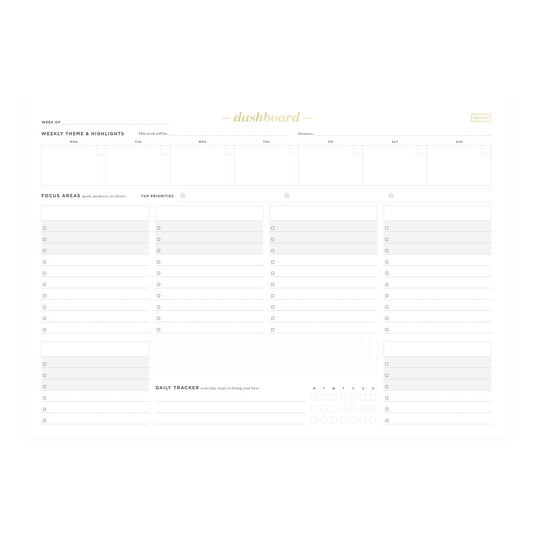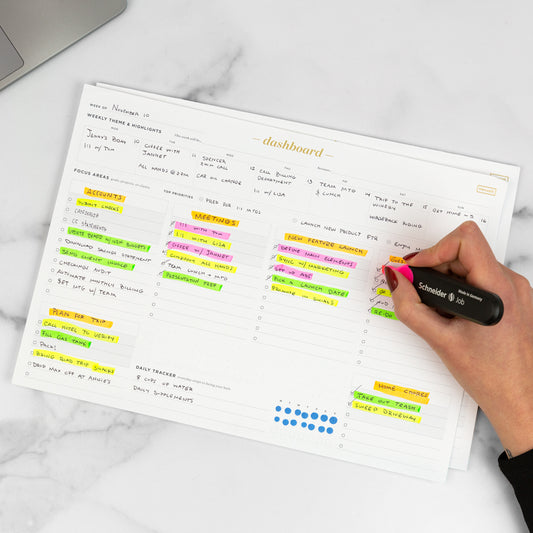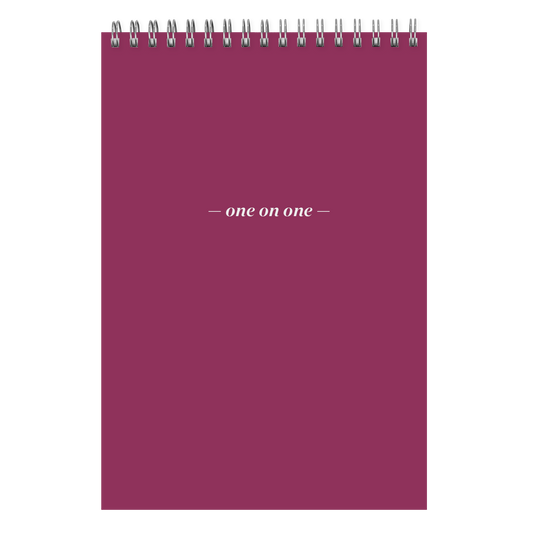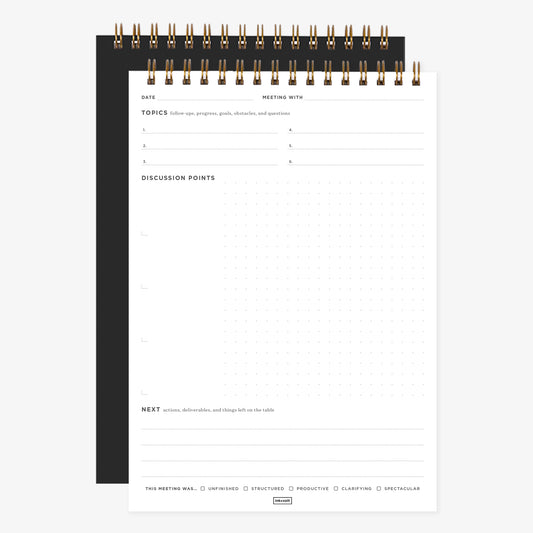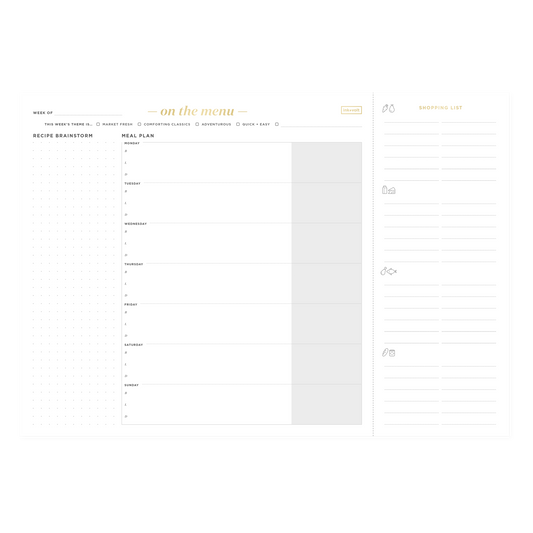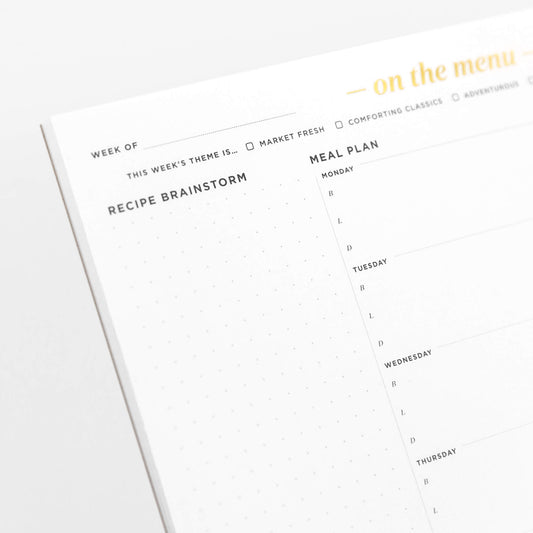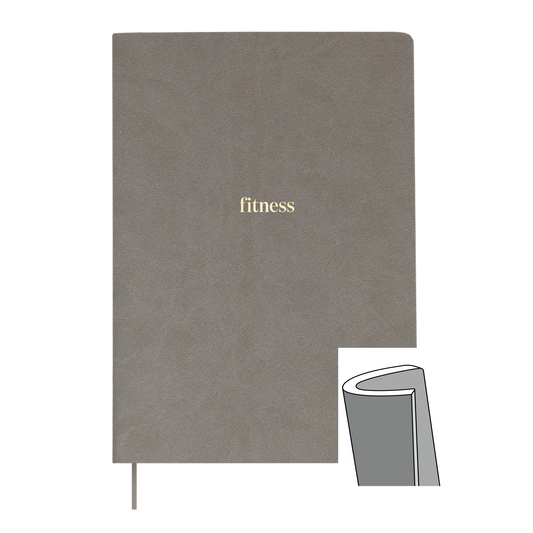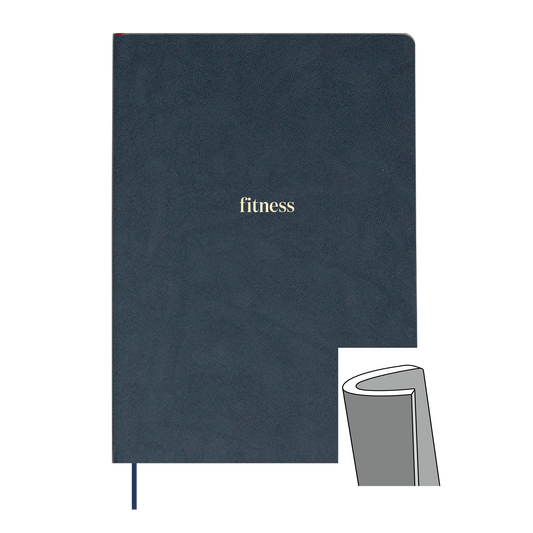Time is arguably your most important resource, as you cannot earn more, and you can only spend it on the present.
As planners, it’s imperative to know just how effectively we are using this resource.
We all stress about not having enough time. But how much time you have is up to you. How well are you budgeting your time?
In the moment, it’s tough to acknowledge and course-correct when we begin to waste time. Yet in the span of a week or a month, it can be nearly impossible to exhaustively study how often we resort to time-wasters.
Though it may seem like you’re using your time as effectively as you possibly can, every time you say, “I wish I could do that, but I don’t have time,” you are actually wrong. You do have the time — you just have to budget it better.
How you spend your time is how you spend your life
Whether you want to try a new hobby, start a fitness regime, implement weekly meal planning – any goal or project requires time. And that is something we may not always feel we have.
But *why* exactly do you feel like you don’t have time? Do you know where all of your time is going? Do you know if it’s being spent wisely?
Our collective cultural focus on productivity has led us into the time-blocked age of calendars, reminders, and a seemingly never-ending to-do list. Tools help us organize what we know we need to spend on activities we want and need to complete. But calendars don’t give us more time, they only serve to arrange the time we consciously have.
This isn’t just about “productivity” either
A common concern for modern families is how much quality time they’re spending together. How many of us have caught ourselves surfing our feed when our partner is asking for our attention? How often have you spent the entire trip to the dog park not interacting with your dog but instead firing off after-hours work emails?
Moving through life in an unconscious rhythm may seem like smooth sailing, but it is really a trap for unhealthy habits.
Here’s how to fix it: time-tracking
The time you are wasting or spending distracted is time you could be devoting to projects, hobbies, and personal engagement you’re craving.
Time tracking illuminates where we are spending time without purpose and without fulfillment, thereby tallying up hours we could repurpose for more satisfying endeavors.
If you’ve wanted to start a yoga practice and can’t find the time in your current schedule, this exercise will illuminate where you’re letting precious moments slip away. At the completion of your time tracking, you’ll have the opportunity to journal about how you’ll tighten your time budget for use on more nurturing endeavors.
Try this exercise for one week. Including Saturday and Sunday. I suggest going Sunday – Saturday and establishing time the following Sunday to journal about your results. The activity itself is attention-consuming and may seem like overkill, but it is an investment that will pay off many times over.
What you’ll need:
- Your Ink + Volt planner, a lined notepad, or other multi-page blank writing space. Keep your daily page bookmarked so you can return to it easily.
- Timer. I find that a phone works best because I’m typically always carrying it.
- Writing utensil. It helps to have this next to your planner, so a pen quiver is fitting.
- Patience.
1. When you wake up in the morning, set your first timer of the day for 15 minutes
Go about your normal activities: brush your teeth, take care of your responsibilities and… DIIIIING! When 15 minutes are up, stop what you’re doing, grab your pen and planner. How did you spend that 15 minutes?
- Brushed my teeth
- Let the dogs out
- Checked weather
- Read Instagram and Facebook notifications
2. Reset the timer and continue
Each end to your 15 minute timer sparks the motion of opening your planner to your weekly spread, recording what you were just doing, and continuing your day. Then the timer starts again for another 15 minutes.
Be honest, be thorough, but also be short. Writing in shorthand such as, “IG” or “Project name” or “Chemistry studies” will keep the recording process short but clear.
Say you have a 30-minute commute in the morning which is at least two rounds of your timer. This is a perfect opportunity to take a look at how you’re spending that commute.
If you’re driving:
- Are you listening to something educational, enjoyable, or informative?
- Are you relaxing your body in preparation for the day?
- Did you do any mental work or brainstorm on any projects?
(Don’t write in your journal if you’re driving in your car, but simply make a mental or voice note of how you spent your commuting time. Record your notes as soon as you park.)
If you’re on public transportation:
- Did you use a wifi hotspot to send emails or work on a project?
- Are you reading a particularly engaging book?
- Did you practice a hobby such as sketching, knitting, or journaling?
Or, did you do none of those things? Maybe you had a stressful commute, flipped the radio fifteen times to no satisfaction, or found yourself huddled amongst other humans on a crowded bus and couldn’t reach your book.
Acknowledging where there is time spent in a way that you don’t find personally or professionally nurturing is the first step to implementing new strategies for time maximization.
For some, this exercise may catch you slacking.
I can’t think of a single person who wants to be caught slacking. Most of us work quite hard, sometimes too hard, to be seen as productive, successful, and skilled in our industry. But everyone has their days.
Some of us spend those days lost in Pinterest, looking at moodboards and sewing patterns and dreaming of our next travel destination. Others spend it surfing social media and updating their Instagram collections.
Regardless of how we procrastinate, I’m believe that it’s better to know I’m procrastinating than to pretend it isn’t happening. In the past, I’ve completed this exercise and was shocked to learn I spent more than six hours on Instagram that week. To me, most of that is time wasted, so I knew I needed a change.
(And to be clear, I had no idea I spent so much time on Instagram. Very few of us have an accurate estimate of where our time goes, especially time that is lost to passive, short activities like social media.)
3. After each day, write a paragraph or two about the experience of scrupulously tracking time
You may feel like writing, “This is ridiculous, why am I doing this?” or “I am rarely doing the same thing from one fifteen minute bracket to the next!” Discovering a jagged working routine may unearth the root of your scatterbrain or your constant complaint that you can’t stay focused.
See if you can notice and record patterns in your time. Maybe you notice that each time you go to the bathroom, you check your notifications and spend more time than you need to in the stall. Or, you may notice that at 10 PM, you’re still responding to work messages. Regardless of what each of these patterns means to you, they’re worth recording to completely clarify your relationship with time.
4. On Sunday, review the entire week
After you’ve completed this exercise for a full week, you’ll have a very clear picture of how you spend your time. By including all areas of your life (at home, in the car, at night, and so forth), you have a clearly segmented and overall perspective of all of your time spent. You’ll find that your relationship with time may vary from phase to phase of your personal schedule.
- Morning and night routines.
- Professional space, either at home or at the office.
- With your friends and family.
- During your off-time.
- Mealtimes, self-care, and hobby activities.
Set aside time the Sunday after your week to journal about your results. You can do this on a brainstorming page of your Ink + Volt planner or within your personal journal, depending on how much space you believe you’ll need. Try one or any combination of these journaling prompts to clarify your relationship with time:
– What activities qualify as “wasted time” to me?
Understanding what time is “wasted” is important to moving forward after this activity. Some people may see listening to an audiobook while commuting as wasted time (because they should have been doing something else), while others will see an audiobook as valuable learning or relaxation time.
Define what “wasted time” is to you and identify occurrence on your list. You can use a highlighter, a small pen mark like an asterisk or dot, or simply circle those activities on your calendar.
– What was my “best spent” time?
Time spent well may give you one or more of these sensations:
- Feeling nurtured or enlivened
- Achieving success or completion
- Connection with loved ones or new people
- Feeling creative or self-expressed
- Satisfaction and fulfillment
Identify on your list where your time was best spent and identify that separately from wasted time. This may help you to see the contrast between time that is well spent and time that is wasted.
Wasted time may leave you with one or more of these sensations:
- Lack of satisfaction and completion
- A sense of longing or lacking
- Passivity or stagnation
- Disappointment or self-criticism
- Boredom
Any activity that results in self-scolding or is the result of boredom can easily be exchanged or reimagined to become well-spent time.
For too long, I didn’t have a personal definition of “well-spent time,” “wasted time,” “productivity,” and other buzzwords that society provides to judge quality of life. Without these definitions, we get stuck in the feedback loop of doing activities society tells us are productive but that are secretly wasting our precious lives.
– Where and when do I waste the most time?
Environments and our individual circadian rhythms play a major role in how we spend our time. Whether you are most productive in the morning or you’re a bonafide night-owl, you are more than likely triggered to waste time at specific hours and in certain places.
I interviewed a friend who shared her biggest time-wasting trigger with me:
“I’ve developed this habit of waking up in the morning and staying in bed with my phone, sometimes for hours, mindlessly scrolling through my social feeds and Reddit. None of the information is particularly useful or necessary, but I’m bored. I stay snuggled under the covers rather than doing what I know will make me feel better, which is to get up, get tidied, and start my day.”
You may find that staying in bed too long wastes your morning or that sitting on the couch too late wastes your night. Take a look at your results and see what times of day are the most susceptible to waste.
For some, certain environments open us to wasteful activities. My personal environmental “triggers” are:
- Waiting in line at the grocery, DMV, post office, etc. – waiting for anything, really. I’m usually only there for 5 – 10 minutes and instead of doing something I enjoy, I resort to wasteful activities that leave me feeling bored and unsatisfied.
- Laying in bed for too long in the morning. I know that if I get out of bed and don’t engage with my phone until I’m at the breakfast table with coffee that I have a much better feeling about my morning time spent.
- On conference calls that aren’t in any way related to my projects or responsibilities. In the past, employers and clients have asked me to be a part of weekly “huddles” or conference calls to keep me up to date with company happenings, but I often felt those calls were a waste of time. I could’ve just as easily read the minutes, rather than sitting and passively listening. Once I learned that this was a waste of my time, I politely requested that they send me the official minutes and action items that required my input and utilized that hour or two for more productive products.
By acknowledging your environmental triggers, you can begin to retrain your brain to choose activities that are fulfilling in those spaces, rather than resorting to boredom-inducing habits.
– Approximately how much time did I waste this week?
One hour, five hours, ten hours or more? I have found myself wasting hours each week, during and outside of scheduled work events, when I was unconscious of how I was spending my time. Go further in this inquiry – how can you repurpose the time you’ve been wasting?
Moving forward with a clear portrait of your time spending practices
Armed with a new, informed perspective of how you’re spending your time, it’s up to you to restructure where you’re leaking most. If you see that you’re most susceptible to environmental triggers, how can you implement a reminder or habit that transforms that time into a fulfilling pursuit?
This activity may result in personal introspection… and that’s a spectacular added bonus. Recognizing exactly what constitutes wasted time may help you to minimize personally detrimental activities and move forward with projects you’ve neglected due to overwhelm.
Start slowly. Create a plan for minimizing your time wasters over a period of weeks or months, depending on the gravity of your situation. Replacing one habit each month, setting a second alarm in the morning to push you out of bed, or selecting an accountability partner to join you on your time crusade may be the missing link to establishing a more satisfying and enjoyable relationship with time.
And let us know how it goes. Share your time-tracking journey on Facebook or Instagram with #inkandvolt.


